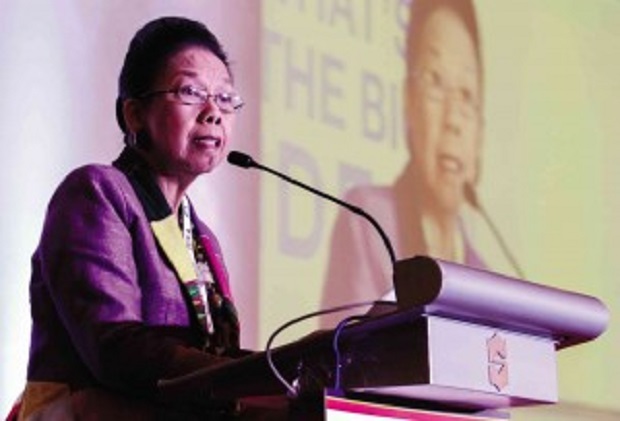The Commission on Higher Education (CHEd) chairperson said the agency has some lump sum funds for the K to 12 program and scholarship grants, but denied that these are pork barrel funds.
During the deliberations at the House of Representatives appropriations committee for the CHEd budget for 2016, Chairperson Patricia Licuanan cited the “Tulong Dunong” program, under which lawmakers may still nominate the beneficiaries of scholarship grants.
A student financial program earmarked with P986.2 million in 2016, the “Tulong Dunong” program targets graduating high school students with at least 80 percent general weighted average and who are persons with disabilities, members of cultural minority groups, or children of solo parents.
Kabataan Rep. Terry Ridon asked Licuanan if the program functions like a pork barrel fund which may be used by legislators under their discretion.
Licuanan said lawmakers may nominate the beneficiaries of this program, but that does not make it function like the defunct congressional pork barrel Priority Development Assistance Funds (PDAF).
She added that the utilization of the fund is subject to stricter guidelines by the CHEd.
“Legislators can nominate. But what makes it not PDAF is the fact that we have very stringent guidelines which apply to our grant scholarships,” she added.
In a statement, Ridon said the legislators’ leeway to nominate scholarships makes the fund essentially pork barrel.
The Supreme Court in a landmark decision scrapped the congressional pork barrel PDAF following allegations of plunder against three senators and former lawmakers for PDAF misuse in their alleged dealings with accused mastermind Janet Lim-Napoles.
According to Ridon, the said fund was inserted in the budget in the aftermath of the abolition of the PDAF, which had long been the lawmakers’ source for financing their constituents scholarship grants.
“My suspicion is, the Tulong Dunong program just replaced the PDAF under CHEd. Under this program, CHEd may be allowing legislators to tap funds and identify beneficiaries, much like how they used to do under the PDAF regime,” Ridon said.
Licuanan also admitted that the P8.275 billion transition budget for the full implementation of the K to 12 program are lump sum funds.
The transition fund would be sourced from the budget, tuition and unprogrammed funds.
Licuanan said these lump sum funds would still be disaggregated upon the project proposals in the fund utilization.
“Admittedly, this may still be lump sums but they will not remain so for very long. They would have to be accompanied by applications for grants and so forth and they will be processed accordingly,” Licuanan said.
Licuanan said the P8.275 billion K to 12 transition fund is allocated for scholarships (P3.286 billion), senior high school training for teachers (P245.4 million), faculty development grant (P3.516 billion), staff development grant (P727.02 million), and innovation grants for higher educational institutions (P500 million).
The CHEd proposed budget for 2016 is P10.533 billion, 209 percent higher than its approved 2015 budget at P3.402 billion.
The CHEd received a significant increase in its budget in anticipation of the full implementation of the K to 12 program in 2016.
Under the K to 12 program, there will be one year of kindergarten, six years of elementary, and six years of secondary education (the latter includes four years of junior high and two years of senior high school).
The additional years of primary education would displace tertiary schools of incoming first year students for at least two years.
The program aims to make the country’s education system at par with other more developed countries, despite purported additional cost to families and problems on educational infrastructure. Marc Jayson Cayabyab, INQUIRER.net/CDG
